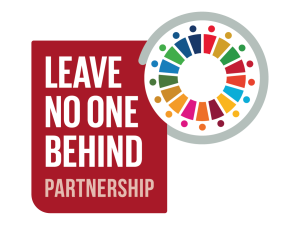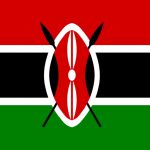View the recording of this session here.
Reflections from the LNOB Partnership’s working session at the 2022 World Justice Forum
The global pandemic has further exacerbated the long-standing structural inequalities and governance weaknesses around the world. As a result, an increasing number of communities are falling further behind the ambitious plan of the Sustainable Development Goals (SDGs) to “leave no one behind.” From 30 May to 3 June 2022, this year’s World Justice Forum brought together hundreds of leaders and experts from a broad spectrum of disciplines and geographies in the Hague to talk about these challenges and find effective measures to build fairer and healthier communities
Michelle Bachelet, High Commissioner for Human Rights, UN echoed:
“Justice means equality. Justice means fairness. Justice means accountability, fighting impunity and offering redress. It also means leaving no one behind and leaving no one behind means involving marginalised groups in decision making.”
The Leave No One Behind Partnership at the 2022 World Justice Forum
The Leave No One Behind (LNOB) partnership hosted a virtual working session at the 2022 World Justice Forum. Members from the LNOB country coalitions in India, Nepal and Malawi spoke about building just communities through community-driven data (CDD), presenting national case studies on CDD. They emphasised the role of CDD in fostering equal rights and non-discrimination, while highlighting both advantages and limitations of CDD and sharing their recommendations on making policies more inclusive. We were joined by Annie Namala, Convener, Wada Na ToDo Abhiyaan (WNTA) from India, Kriss Chinkhota, Care from Malawi and Shikha Shrestha, Head of Programs, VSO Nepal.
Annie introduced WNTA and its work around SDG with the focus on the LNOB principle. The WNTA enables volunteers and champions from marginalised groups to conduct participatory research to understand the voices and experiences of vulnerable groups and communities in India. Kriss explained how the LNOB coalition in Malawi has been leveraging scorecards to collect data on marginalised groups to understand the country’s efforts at curbing inequality. Shikha explained the LNOB consortium’s work in Nepal and the support and commitment they have received from the government and other partners in achieving the local SDGs targets. Read more on the LNOB country projects here.
Experiences from margnalised communities
We also heard experiences directly from a community member. Konok Roy, a 16 year old activist from Bangladesh shared his perspectives on the added value of inclusive data approaches. Through his engagement with the Citizen Voice and Action project (led by our partners from World Vision), Konok and his team leveraged community-led voice intervention to galvanise the local authorities and police to establish a child helpdesk at the community’s police station to provide better services to children. Furthermore, Konok and his fellow youth activists were able to mobilise other civil society organisations (CSOs) working on children’s welfare to reduce child marriage, child labor and different forms of violence against children in his community.
Panel Discussions
The diversity of our panel allowed us to understand the role of CDD in making voices heard and count from different perspectives. Panelists included, Alex Mihnovits, Consultant at HelpAge, who explained how older persons leverage data from their community to monitor policy and services relevant to them and use the generated evidence to push for change with local authorities.
Ram Hari Gaihre, Senior Statistician at National Statistics Office (NSO) Nepal emphasised the rising demand for CDD in Nepal as an alternative data source to complement national statistics. Panelist Deepesh Paul Thakur, Director for Local to Global at World Vision International shared with the audience insights on the Citizen Voice and Action (CVA) project. CVA has helped to generate volumes of CDD through tools such as scorecards, enabling marginalised groups to voice their concerns and participate in dialogues with policymakers in 48 countries.
Exchange on Equity vs. Equality
The working session evolved around the theme of ‘Equity vs. Equality.’ Session moderator Peter Koblowsky, Senior Partnership Manager at the International Civil Society Centre, illustrated the differences between the two principles to open the space for discussion. Participants of the session discussed what role evidence and data play in achieving Equity and Equality. Based on the exchange, the working group hinted that Equity is an enabling factor to achieve true Equality for everyone in society, in particular for marginalised communities, who have been structurally disadvantaged one way or another and therefore, need specific forms of support.
The Way Forward
Expanding Civil Society’s Capacities to Build Evidence: Participants in the session agreed on the need to increase capacity-building activities to strengthen local communities and civil society’s potential to collect and leverage CDD as it is an essential tool that fills data gaps on the status and needs of marginalised groups and allows communities to participate and decide over the use of data that describes them.
Establishing Guidelines for CDD Generation and Use: CDD is a participatory approach. NSOs, CSOs and communities, need to find a way to agree on ways forward to improve quality and reliability of CDD and there by allow for its greater use in official monitoring and public planning. The need to introduce mechanisms and guidelines comprising standards and good practice on generating and using CDD was emphasised by the participants of the session.
Creating Data Dashboards: Kriss mentioned that the LNOB coalition in Malawi uses a Citizen Data Hub in order to collate data from LNOB partnership and other interventions into a central digital platform. The data analysis via the joint platform identified diverse issues that led to policy action plans and solutions implementable at local, national, and global level. Annie from WNTA echoed the importance of such data dashboards for engaging the global community in CDD. Annie added that data dashboards have the potential to bring CDD to public spaces, enabling more people to access and use CDD to change lives. See here two examples of national data dashboards supported by the LNOB partnership: India and Nepal.
The LNOB partnership’s working session at the World Justice Forum highlighted CDD’s major role in understanding local drivers of vulnerability and marginalisation. The discussions emphasised CDD’s potential to serve as complementary information source for public planning, capturing the marginalised groups’ voices, needs and experiences in data. With this inclusively generated data, communities have a poweful tool to call for accountable delivery of policy commitments at local, national, and global level, thereby fostering equity and equality.
View the recording of this session here.








